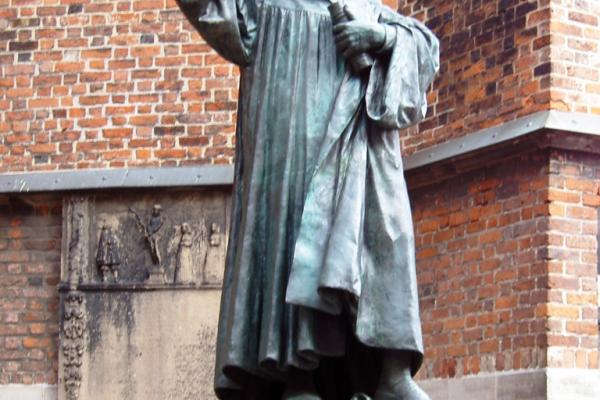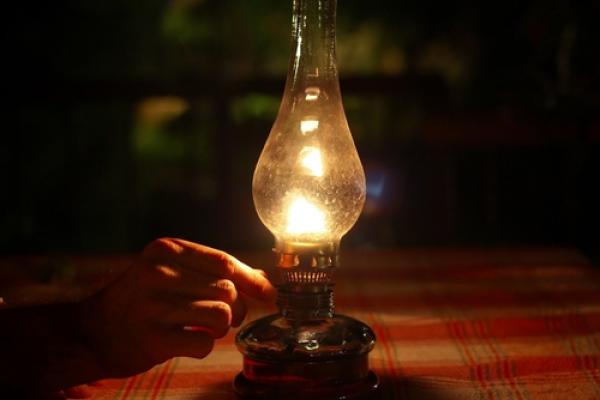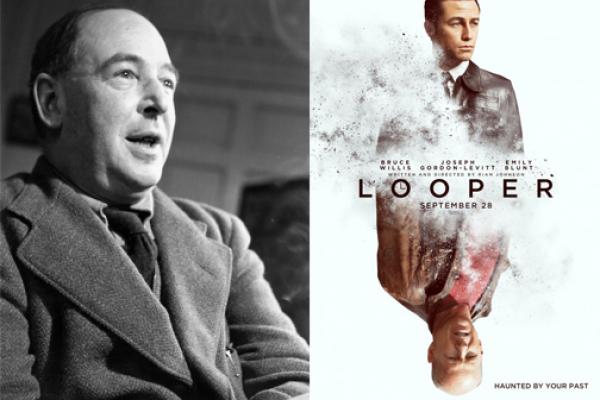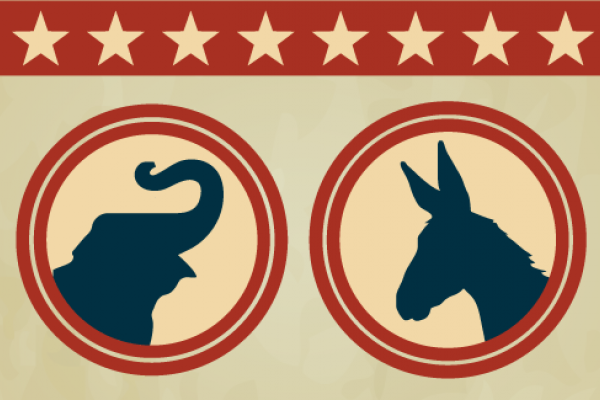New Andrew Bird, a little Reformation polka, a concert film from Mumford and Sons, an app that hides all those pesky political Facebook updates, an awesome Halloween costume, a Hobbit-themed airline safety video, The Buddhist Rapper, and, of course, the top ten ways to smash a pumpking.
I know, that's a lot to take in.
LOS ANGELES — Unshaven and wearing a black hoodie and cap, Omar Elba looked out from the lectern, surrounded by a gold cross and organ pipes. "Moses, you are my nizzle fo' shizzle," said the Egyptian-born Muslim comedian, doing his best to channel Snoop Dogg.
It's a joke he's done before, but never in a church.
The unique setting of their performance inside Westwood Hills Congregational Church wasn't lost on any of the performers at the Sultans of Satire comedy show. Yet the sacred stage didn't keep them from swearing or talking about sex, although it inspired more jokes about growing up Jewish, Muslim, and Christian than one might typically hear during stand-up.
"I don't know whether to tell jokes or tell you my confessions," Elba said, opening up the show.
Today is the day we remember the Protestant Reformation. On Oct. 31, 1517 Martin Luther, my denomination’s namesake, nailed his 95 Theses on the church door in Wittenburg. It was the beginning of a new movement that brought many changes to the Christian church. Perhaps the change I am most thankful for (other than a new awareness of justification by faith alone, simul iustus et peccator, and imputed righteousness of course) is that the Reformation paved the way for the Bible to be placed in the hands of the people. Before Luther’s German translation was completed in 1534, which happily coincided with advancements in the printing press, it was virtually impossible for any non-clergy Christians to get ahold of, much less read, the book we take for granted.
Individual faith and the ability to study this book for ourselves is a benefit we don’t even stop to consider. I grew up with more Bibles in my home than we could ever use and have countless different versions now in my office. And yes, there are still some places where access to information and printed text is hard to come by, but at least here, God’s Word is always at our fingertips, if we want it to be.
I’ve had a number of interesting discussions with various people lately about the notions of hell, salvation and who goes where. It’s a rhetorical exercise for the most part, since no one really knows. But there are plenty of real-life implications, particularly in the sphere of religion. For some, the understanding of what happens to us after we die is the prime mover in their day-to-day faith.
I know that the times when I resonate with more hard-line evangelical theology are few and far between, but in this case, I tend to resonate more closely with them than with my brothers and sisters of the Calvinist (also called Reformed Church) movement. For some not familiar with the differences, common Evangelical belief would suggest that God’s saving grace is available to all who seek it, and that the only thing standing between us and eternal salvation is us and our unwillingness to accept God’s perfect gift. In the Reformed Church, however (represented most prominently today by pastors like Mark Driscoll and John Piper), salvation is reserved for an elect few. The rest of creation will suffer the eternal wrath of God, period.
“Long Time Gone” is David Crosby’s anthem of hope in jeopardy. He wrote it the night Robert F. Kennedy was assassinated.
“I believed in him because he said he wanted to make some positive changes in America, and he hadn’t been bought and sold like Johnson and Nixon – cats who made their deals years ago with the special interests in this country in order to gain power,” Crosby wrote in the liner notes of the 1991 CSN boxed set. “I thought Bobby, like his brother, was a leader who had not made those deals. I was already angry about Jack Kennedy getting killed and it boiled over into this song when they got his brother, too.”
In the ‘60s, the Kennedys represented hope for change: racial equality, economic justice, and abolishing the death penalty, for example. Five decades later, you still don’t see many long-haired politicians, but that hardly seems the matter of dire culture import that it apparently was in 1968. And now we have a black president. Still, on the whole, Crosby’s words seem prescient, rather than anachronistic.
Almost 50 years later, we’re still giving legal benefits to some couples but denying them to others, not to mention that we fill our prisons with brown-skinned people, too many women are still ashamed to report rape or domestic violence, greedy people hoard resources while others go hungry, and the president who campaigned on hope hasn’t been able to bring any real change in our unjust economy.
As the credits rolled after Looper in a packed Chinatown movie theater in Washington, D.C., I simply sat in reverent silence. Moviegoers on all sides began to rise and quietly leave the theater, but for a brief moment all I could do was just sit there. Quite simply, the movie blew my mind.
When I snapped out of it my thoughts started racing, analyzing the ending, which I won’t ruin for you, and the movie as a whole. It wasn’t a question of whether it was “good” or captivating — those were givens. Rather, I started mining the film’s rich themes and questions, particularly what it said about love.
While sitting there, lost in my mind, I began to notice the music accompanying the names moving onscreen. The song’s chorus sang something like, “I loved you so much that it’s wrong.”
I don’t think the song choice was an accident.
That lyric, I think, illuminates the crux of the film: can something like “Love” — not just romantic love — become perverted? Or, in other words, can our love for one person lead us to do horrible things to others?
As the winds and the rain of Hurricane Sandy settle down, one bit of the aftermath is going to be another round of conversation about how climate change is affecting our world.
It’s not a conversation you have heard much of in the presidential campaign this year. Climate change is one of a quartet of issues that will have a huge impact on the future of this nation that have gotten short shrift by both President Barack Obama and Gov. Mitt Romney.
Poverty. Guns. . Drones. Climate change.
Bring up any of those issues and watch the candidates make a quick nod of concern and then scamper away from any specifics. Yet those issues will be with us long after Nov. 6, so it is incumbent on those of us in the faith community to be laying the groundwork now for how we will address them in the coming year.
That work has already begun, of course. The challenge is not to let the post-election exhaustion sweep away those concerns like they were potted palms on a pier in the midst of the hurricane.




